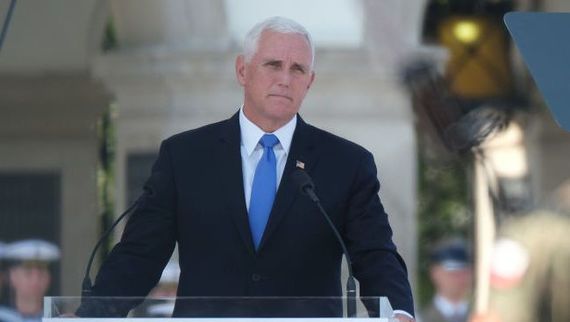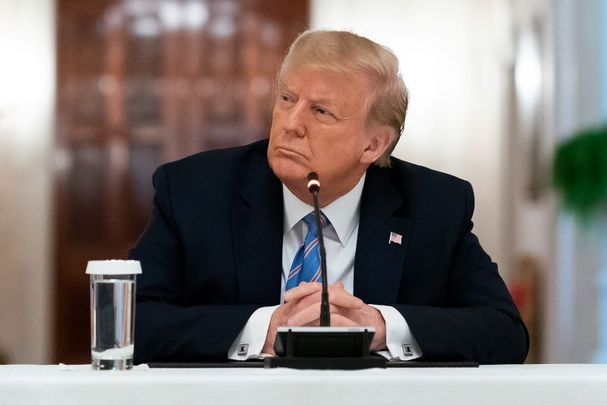The United States is the guarantor of the Good Friday Agreement and the resulting peace process, but under President Donald Trump, we have abandoned our responsibilities to the people of Northern Ireland.
As Chair of the American Bar Association’s International Law Section, I led the first delegation to Northern Ireland to study the peace process, and maintain close connections through my liaison roles with the Law Society of Northern Ireland and the Bar Council of Northern Ireland. I’m active with the Catalyst incubator and the Digital DNA Awards and have had the good fortune to visit Northern Ireland more than 30 times over the past ten years. Over the past few days, I have developed a fear that a breakdown of the peace process is a genuine possibility.
The United States has a unique opportunity to renew its commitment to the Good Friday Agreement and help launch the next phase of peace, prosperity, and reconciliation in Northern Ireland. This opportunity is borne of the struggle between the U.K. and EU to define their trading relationship after Brexit. In preparation for the upcoming negotiating round, the U.K. government introduced the Internal Market Bill on September 9 that would terminate the Northern Ireland Protocol, to which the UK and EU agreed in October.
Termination of the Protocol could result in the reimposition of a hard border between Ireland and Northern Ireland. Even if the Bill is not enacted, a hard border appears increasingly likely after December 31.
A hard border between Northern Ireland and Ireland is more than symbolic and would be disastrous. It could cost more than 40,000 Northern Irish workers their jobs, as exports to Ireland could fall by 20% or more. More importantly, a hard border could trigger a return to the type of civil strife and violence that largely ended in 1998. George Mitchell, the architect of the Good Friday Agreement, has been clear that reimposing a hard border would breach the spirit and the letter of that treaty.
President Trump has endangered the Northern Ireland peace process by championing a hard Brexit and showing no concern for protecting the Good Friday Agreement in U.K.-EU trade negotiations. When asked about the Good Friday Agreement during a visit to Ireland last year, Vice President Mike Pence said, “leave the details to others.”

Vice President Mike Pence.
Yet, the details, which the U.S. played a huge part in securing, are the foundation of the peace process. The Trump administration is more interested in securing a consequence-free U.S.-U.K. free trade agreement than protecting the hard-fought peace in Northern Ireland.
The Trump administration egregiously left open the position of Special Envoy for Northern Ireland until March 2020. During that time, Northern Ireland’s power-sharing Executive collapsed; had there been a Special Envoy, perhaps she or he could have facilitated a resolution of the dispute that caused the governance process to not function for three years.
It is time for a renewed commitment to Northern Ireland that develops a prosperity process, furthers reconciliation, and should:
1. Ensure that the Special Envoy for Northern Ireland is someone with experience in Northern Ireland and not meted out as a consolation prize.
2. Vigorously protect the citizenship provisions of the Good Friday Agreement that allow people in Northern Ireland to identify as Irish, British, or both.
Tackle the most difficult outstanding issues in the peace process, such as fostering integrated education, promoting tolerance of Northern Ireland’s linguistic diversity, and building a more inclusive and comprehensive reconciliation approach.
3. Increase business linkages to foster employment and help the U.S. economy. Northern Irish companies already employ thousands of Americans, and many more want to expand to the U.S.
4. Develop exchanges with the Police Service of Northern Ireland to support U.S. law enforcement with community policing, conflict de-escalation, and multidimensional police reform to secure broad community legitimacy.
In January 2017, Trump confessed to then-British Prime Minister Theresa May that he didn’t understand Northern Ireland. It’s clear the current Administration clearly still does not understand what’s at stake and will not seize the opportunity to renew our commitment to Northern Ireland.
Vice President Joe Biden has long been a friend and supporter of the Irish people, the Good Friday Agreement, and the Northern Irish peace process. In recent days, he’s exercised true leadership by vocally confirming his support for the Good Friday Agreement. If we don’t vote on November 3 for someone who understands Northern Ireland and will defend the Good Friday Agreement, the work of the past 22 years on peace and prosperity could come to naught.
Read more
* Michael E. Burke formerly chaired the American Bar Association International Law Section, where he led the first-ever delegation to Belfast. Mr. Burke is a frequent visitor to Northern Ireland, and he represents a number of Northern Irish companies.




Comments